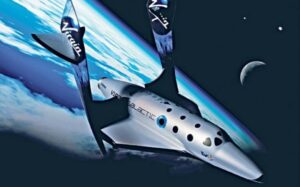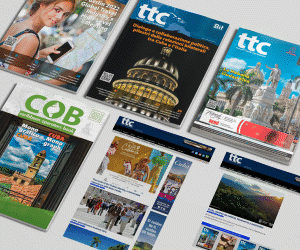TTC Special: Tourism is eager for space travel

Taken of Internet
By Frank Martin
Tourists who are frequently amazed by the media about extraterrestrial vacation trips are becoming increasingly impatient for the moment in which they can take that “big leap” counting only with their personal finances.
At the moment there are more postponed invitations and speculation about these trips than actual results.
An analyst on an Internet network recently stated that “space tourism is booming as a result of technological advances that make space travel more accessible and affordable.”
The article added that private and government investments are taking “adequate steps” towards the development of reusable rockets and space planes that are more efficient, reliable and above all more profitable.
At the moment, the individual travelers who have made some space “jump” have been great businessmen with great financial solvency.
However, the “special industry” has great publicity especially on the Internet.
This is the case of Elon Musk’s SpaceX, owner of the ex-Twitter now called X.
However, the financial movements around extraterrestrial space trips, even if they are only up and down, are extensive.
Progress is being made in reusable space planes. These can take off and land like an airplane and according to experts they increase customer confidence.
Virgin Galactic dominates the market in that sense, having already sent its first test passengers into space in 2020.
Experts say this technology has the potential to revolutionize the space tourism industry by allowing more frequent and affordable access to space.
Entrepreneurs with a reputation for having “the most glued feet on Earth” in this campaign have already launched a “3D printing technology” that is a “pre-stage for the creation of more profitable spaceships.”
Although it is not yet within the reach of even millionaires, this proposal seeks to produce components with complex shapes and structures in a faster and more economical way.
Those working on this concept claim that once operational it will be able to significantly reduce the cost of access to space.
Economists, who tend to have more realistic conclusions, still classify space tourism as “probable”, if we talk about short periods of time to have it on a mass level.
However, they accept the idea that this modality will not only produce dividends for the passages as high as outer space but also for the tourist accommodation facilities that will be made available to them.
Furthermore, such infrastructure is the most possible to build in the short term, while the wait for spaceships continues.
“While there are still questions to be answered about the potential impacts of the industry, its potential to create jobs and stimulate spending in the space industry makes it an exciting prospect for economic development” is the conclusion.
Up front, certain governments are already trying to regulate space tourism.
This is the case of the Federal Aviation Administration (FAA), which is the main agency responsible for regulating space tourism in the United States.
Already the The FAA “is responsible for ensuring that tourist spacecraft meet the necessary safety standards, as well as ensuring that operators are properly trained and certified”
There is also “concern about the potential environmental impacts of space tourism including the production of hazardous waste, the release of greenhouse gases and the creation of space debris. These risks extend beyond the immediate environment of the spacecraft to the environment of the Earth and even beyond,” according to digital sources.
Although for now the whole thing may sound like a fable.

MORE NEWS










